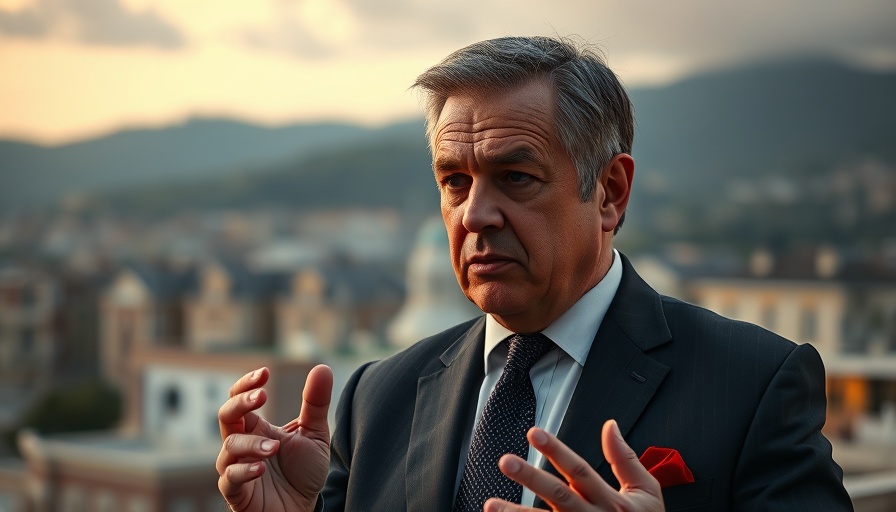
Unveiling the Forgotten: The 1990 Northern Areas Massacre
In a haunting reflection on the past, Reverend Allan Boesak has deemed the events of August 1990 in the Northern Areas of Gqeberha a "forgotten massacre" rather than an "uprising". Speaking at a recent commemoration event marking the 35th anniversary of this tragic chapter in South African history, Boesak called attention to the brutal killing of more than 60 individuals by apartheid forces. A stark contrast to the well-documented massacres at Sharpeville and Langa, the Northern Areas tragedy has remained shrouded in silence, prompting Boesak to question the injustice of such historical erasure.
Historical Context: Understanding the Forgotten Massacre
The 1990 disturbances in the Northern Areas were not isolated incidents but rather a critical point in South Africa's anti-apartheid struggle. They reflected the frustrations of marginalized communities against an oppressive regime, similar to events recorded at Sharpeville and Langa, yet they scarcely echo through history classrooms or public dialogues today. This selective memory serves a political agenda, overshadowing the voices of those who suffered amid governmental turmoil. Consequently, Rev. Boesak's assertions underscore an urgent need to rethink historical narratives that neglect vital sides of South Africa’s past.
Social Connection: The Urgent Call for Recognition
For many residents of the Northern Areas, the repercussions of the violence have echoed through decades, leaving emotional and economic wounds. Edwin Stuurman, a local leader, poignantly reminded attendees that the struggle continues against poverty and lack of compensation. Despite the courage shown by the community, the absence of justice has rendered many still disillusioned and marginalized. This resonates deeply with broader concerns about socio-economic inequities and the ongoing fight for economic freedom, often discussed in political discsourses surrounding parties like the ANC and EFF.
Parallel Example: Historical Erasures Compared
The stark difference in remembrance between the Northern Areas and widely recognized events like the Sharpeville or Langa massacres raises critical questions about how histories are framed. Are certain narratives prioritized over others due to their political implications? The marginalization of the Northern Areas calamity exemplifies a larger pattern in historical discourse that often favors narratives aligning with those in power. This begs for a renewed effort to uplift underrepresented voices in the historical narrative.
Future Predictions: A Call for Change and Engagement
As South Africa gears up for significant political events, including the 2024 general elections and the 2026 municipal elections, the demand for accountability and social justice grows louder. The historical neglect of the Northern Areas tragedy symbolizes not just an anger at past injustices but is also a rallying cry for current and future governments. As Reverend Boesak noted, forgetting these events aids in the perpetuation of power dynamics. Mobilizing memories of the past could transform political engagement and foster genuine reform in areas such as service delivery, land reform, and racial reconciliation.
Actionable Insights: What Now?
Communities and historians alike have called for further dialogues at institutions such as the Nelson Mandela University to ensure these stories are documented and shared. It is crucial for future generations to learn about the tragedies that shaped their society, fostering a culture of accountability and ethical remembrance. Engaging in educational reforms to include comprehensive histories ensures that the sacrifices of those generations are neither forgotten nor dismissed as mere uprisings.
The Importance of Continued Advocacy
This remembrance not only honors the dead but tirelessly advocates for justice and economic reforms that remain desperately needed in today’s South Africa. A unified call for political action and cultural acknowledgment invites all South Africans to participate in shaping an inclusive narrative, one that foregrounds the struggles and triumphs of marginalized communities. As the nation reflects, let this not be merely a moment of remembrance but a catalyst for action, pushing for rights, recognition, and reform in pursuit of a better future.
In light of Reverend Boesak's call, it is imperative to engage with these narratives actively. Communities must come together to seek recognition, compensation, and conversation about their pasts. Rebuilding this historical framework can not only empower local populations but also push for broader societal changes reflective of the violence endured and lessons not learned.
 Add Row
Add Row  Add
Add 




Write A Comment